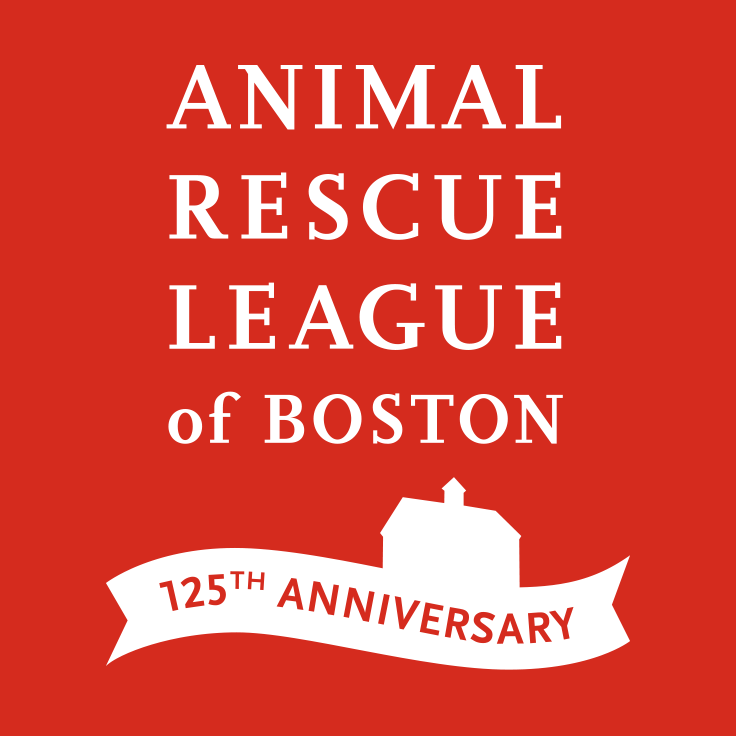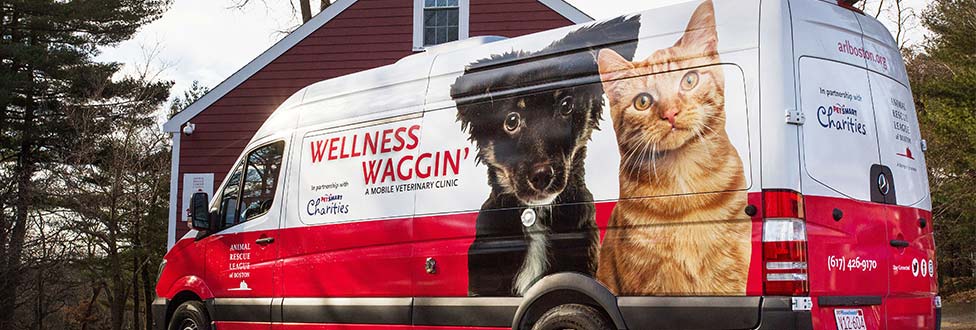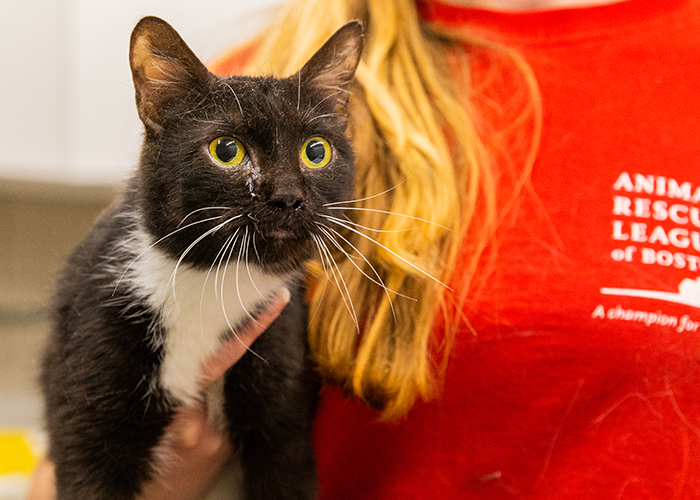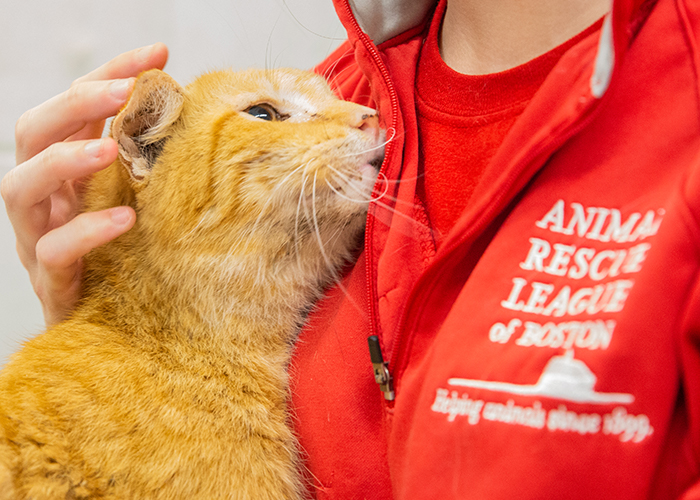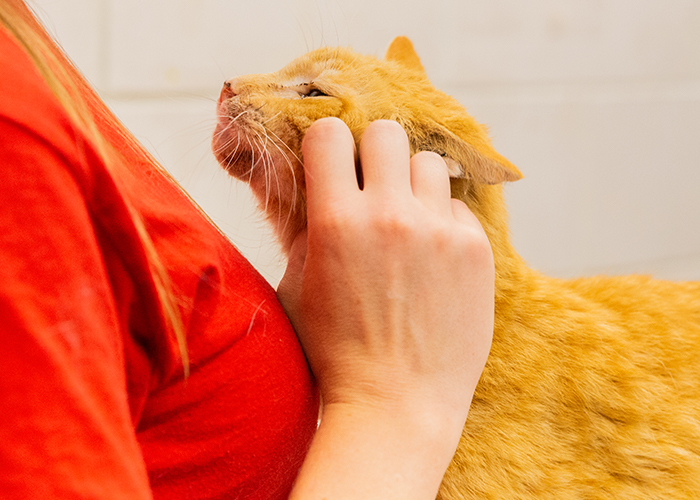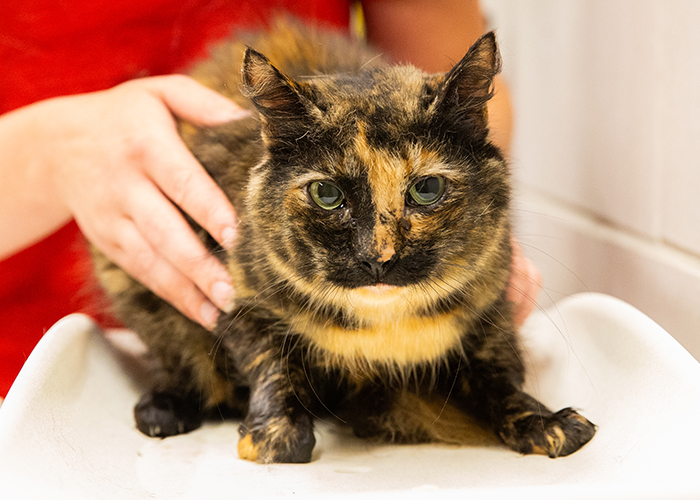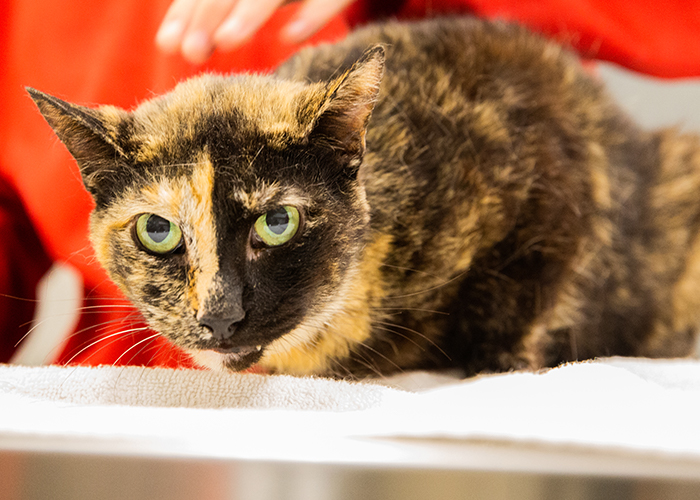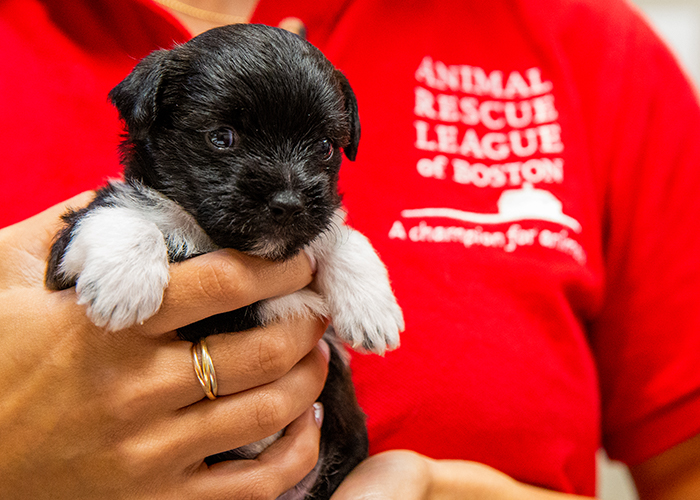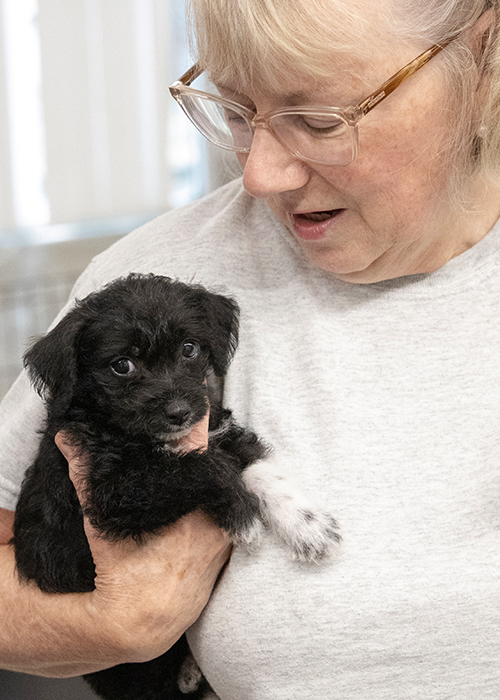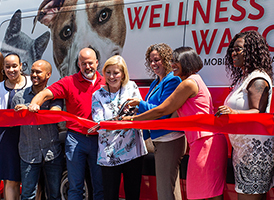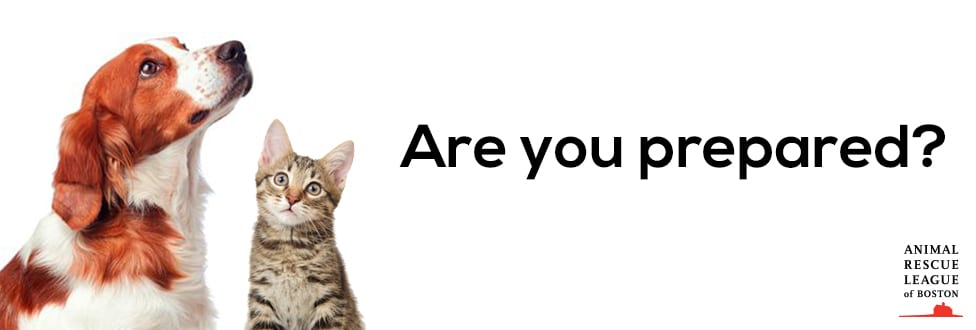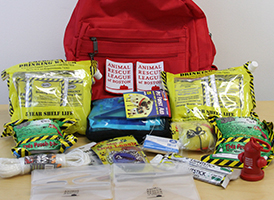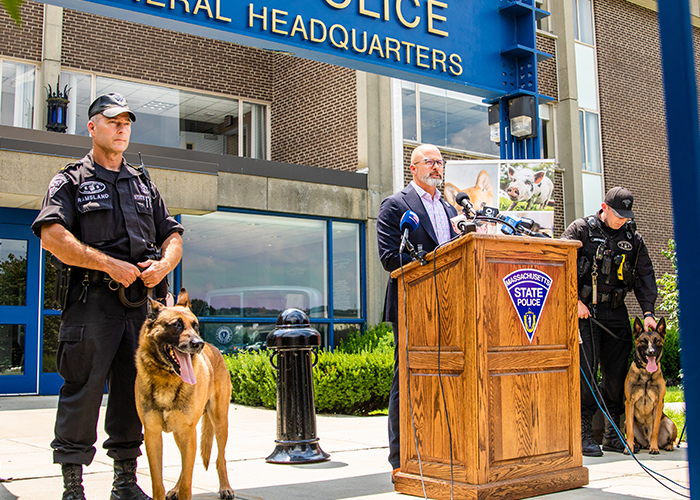Banfield Foundation® Grant to Supply ARL Wellness Waggin’ with Vital Medications
Grant of $12,000 to ensure pets stay healthy
Boston, MA (August 26, 2021) – The Animal Rescue League of Boston (ARL) announced today a $12,000 grant investment from the Banfield Foundation®, to support their lifesaving work for animals in the Greater Boston area.
The generous Community Care Grant will offset the cost of medications and supplies for ARL’s Wellness Waggin’, and will help treat owned pets in the Greater Boston area for approximately 64 clinic days. The Banfield Foundation is also donating 1,852 doses of First Shield flea product to be provided for Wellness Waggin’ clients.
Additionally, the Jim Parker Charitable Trust helped increase the impact of the generous grant award by contributing $5,000 specifically for medications and drugs for approximately 34 clinic days.
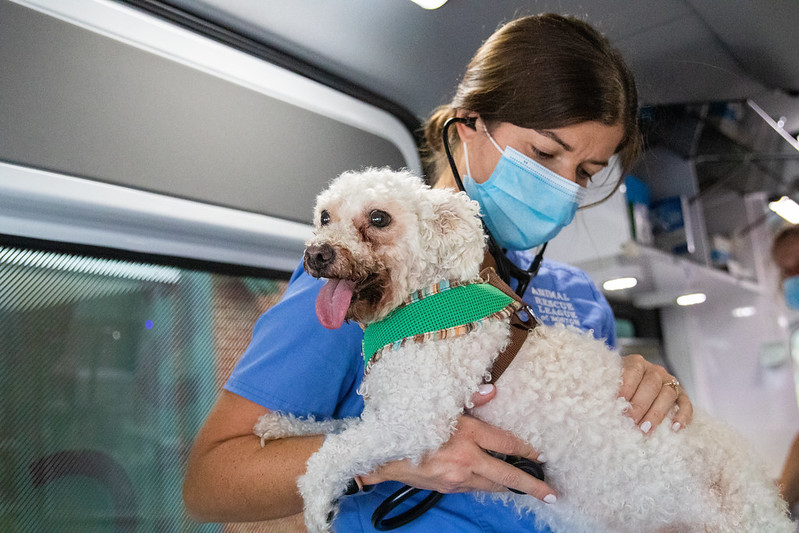
ARL Veterinarian, Dr. Hannah Donnelly examines Muenca at the Mattapan Wellness Waggin’ site.
“The Animal Rescue League of Boston is grateful to the Banfield Foundation and the Jim Parker Charitable Trust for their generosity,” said Dr. Edward Schettino, ARL President and CEO. “ARL’s Wellness Waggin’ provides accessible and affordable pet wellness services and this grant will allow the program to have an even greater impact in the Greater Boston communities we serve.”
In 2020, ARL’s community programs provided a multitude of services including spay/neuter, vaccinations, and general wellness care to more than 4,000 animals in Greater Boston and Southeastern Massachusetts.
For more information about ARL’s Wellness Waggin’, visit arlboston.org/wellness-waggin.
###
About the Banfield Foundation®
At the core of the Banfield Foundation, a 501(c)(3) nonprofit organization, is the belief that all pets deserve access to veterinary care. In support of this belief, the foundation funds programs that enable veterinary care, elevate the power of the human-animal bond, provide disaster relief for pets, and advance the science of veterinary medicine through fostering innovation and education. It also leverages the expertise and passion of Banfield Pet Hospital associates to care for pets in need. At the Banfield Foundation, we are committed to making a better world for pets because they make a better world for us. For more information, visit BanfieldFoundation.org
